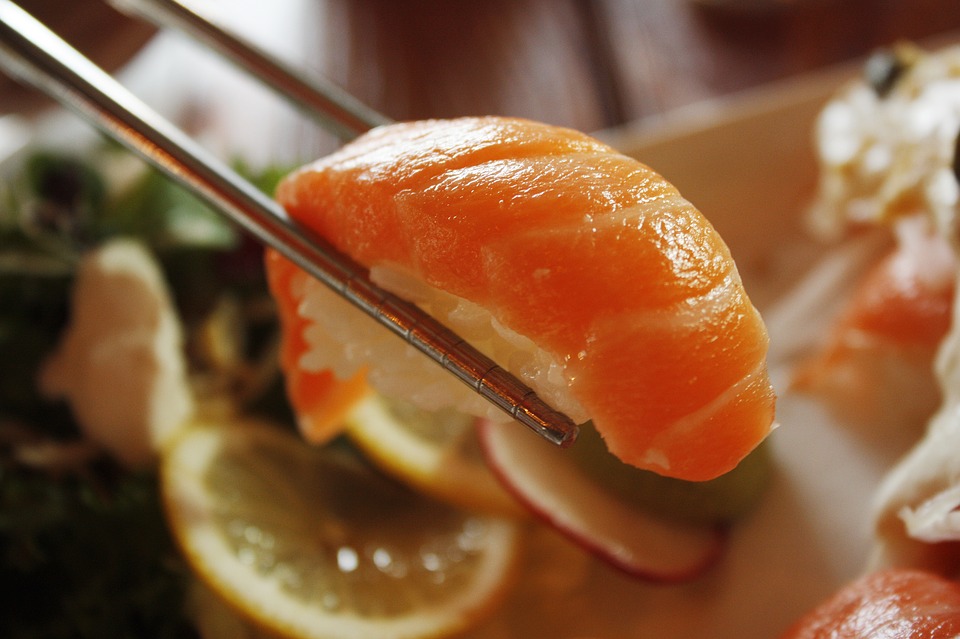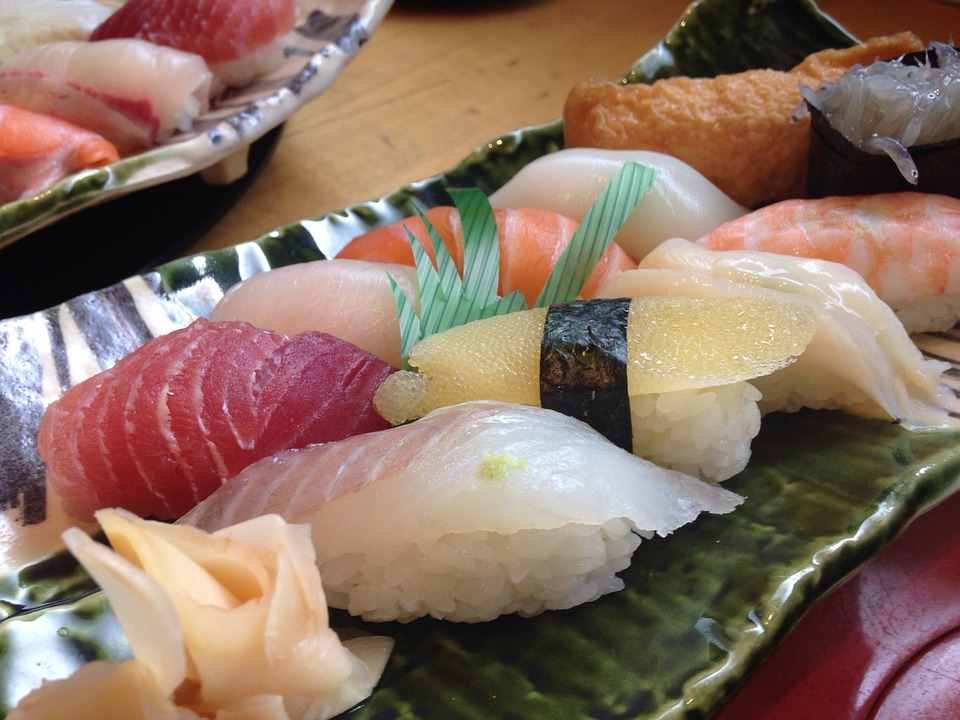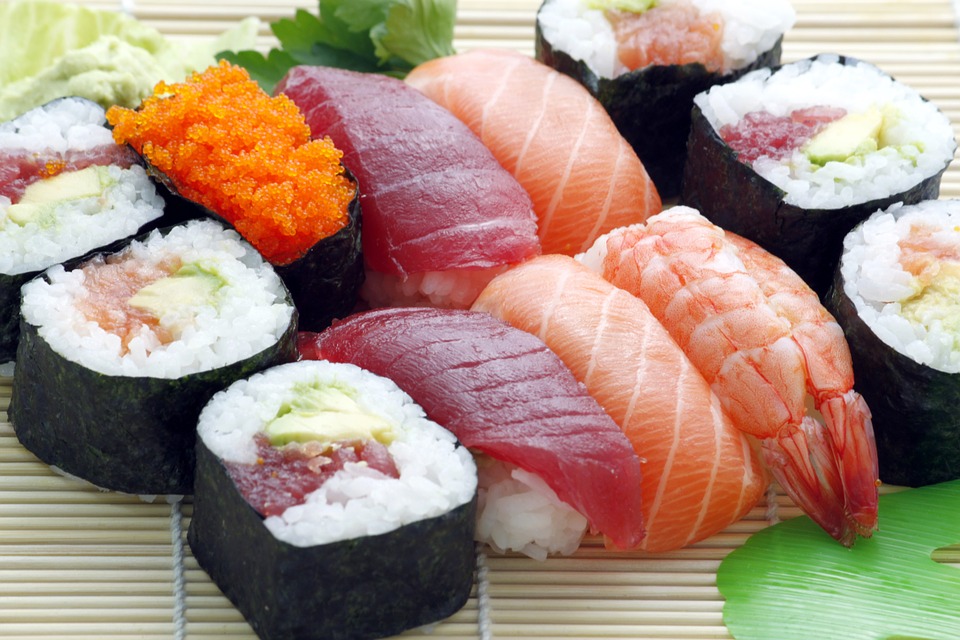Sushi is considered as one of the many favorite treats of people. Other than the fact that it’s a blast of flavor with a ton of ingredients, it tastes good especially with many different variations. Being known as a “fancy” type of food to a certain degree, it is widely offered anywhere in almost any country. But if you’re a fan of sushi, you might want to stop eating sushi now.

Most fast food chains have their own type of sushi; you can literally find sushi everywhere. There are some fans and patrons who consider sushi as healthy because of the low-carb serving and its characteristic of having vegetables, fruits, and fish.
Read: Foods that Make a Healthy Pancreas
Because of the fact that it is served in small servings, people consider it a “light meal” and it’s what they eat if they’re trying to follow a strict diet. However, the question still stands, is sushi really healthy? Before we jump into conclusions, let’s first look at what sushi really is.
What is sushi?
During the 9th century, fish is a dietary complement in Japan. As a matter of fact, the Japanese are the ones who started to combine eating rice and fish. This gave birth to the well-known sushi and made the change during the 1800s. Sushi makers found a way to decrease the fermentation process to just a few hours.
It is a dish that originated in Japan which consists of prepared vinegared rice with a variety of ingredients like vegetables, seafood, tropical fruits, and salt + sugar.
Read: Avoid Eating These to Make You Look Younger
It is served usually cold and in small amounts. It’s considered as one of the well-known appetizers which has a lot of different variations.
So why should you stop eating sushi?
“A lot of bacteria” is an understatement
You might not be noticing it, but if you’re purchasing sushi from places like the grocery store and markets, you might be getting more than what you bargained for.
A study in Norway found a specific set of bacteria called Mesophilic Aeromonas spp in 71 percent out of the 58 samples they used. This type of bacteria is known to cause intestinal and gastrointestinal issues, and other skin and tissues problems.
As per the researchers, the amount of bacteria was more likely due to the condition of the food in poor temperature during the time it’s being transported between the factory and to the store. As we all know, bacteria grows in certain temperatures and this is one of the most probable reasons why.
Moreover, they also detected that some of these bacteria are seen in vegetables and fish that are raw.
It contains mercury… a lot of them
Studies found that eating sushi at least once a week has a heightened rate of mercury levels in the body. Mercury is an element that should not be abundant in our bodies and having a ton of it can cause serious health problems especially in children, pregnant women, and those who have sensitive bodies.
Read: Things You Should Start Eating if You’re Having Too Many Headaches Plus Low Energy
Fish that usually have high levels of mercury are sharks, mackerels, tuna, and swordfish. Although fish have abundant amounts of omega-3, the mercury levels being so high cancels out the omega-3 benefits and just increases the risk of cardiovascular risks.
The staples won’t do you good as well
Partner sushi up in cold-flavored soy sauce, then you’re in for a salty treat. Soy sauce is loaded with sodium which is neither a healthy nor a nutritional condiment. As a matter of fact, it is a culpritfor cardiovascular diseases and it hikes the risk of heart attacks and stroke.
Although the rice content is minimal, refined carbohydrates are calories that don’t really give you anything good for the health. They enter your bloodstream in direct which can give you high levels of sugar which, of course, could be a heightened risk of diabetes.
The fish you’re getting might not be what you think
Fish that are taken from farms are dangerous to your health and can be full of antibiotics, pesticides, and other chemicals. There are markets and restaurants which serve fish that you think are wild-caught but they actually are not. Other than the fact that they’re expensive, they’re hard to find. This is why most businesses resort to farmed fish, they’re cheaper, they’re easier to find, and they’re easier to gather.
Read: Subtle Symptoms of Vitamin C Deficiency You Most Often Overlook
What’s more bothering is that because of the feeds of these farmed fish, their excrement are dangerous and can cause harm to other sea-life creatures.
A UCLA study tested the fish from sushi restaurants all over Los Angeles over the course of four (4) years. What they found was an astounding 47 percent of mislabeled fish being used in these restaurants. Salmon and tuna were among the real ones they serve but the more common ones like red snappers and halibut? Well they always end up being a different type of fish.
Paul Barber, professor of evolutionary biology and ecology and the senior author of the study said that there might be times that mislabelling is somewhat directed.
“Fish fraud could be accidental, but I suspect that in some cases the mislabeling is very much intentional, though it’s hard to know where in the supply chain it begins. I suspected we would find some mislabeling, but I didn’t think it would be as high as we found in some species.”
So if I stop eating sushi, what are alternatives?

Now that you know the negative things that surround the fact of eating sushi, you need to either lessen it or go to an alternative. It’s understandable that totally eliminating sushi is difficult, especially if you’re a fan but there are actually substitutes you can eat so that the sushi you eat is healthier.
Veggie rolls
One thing you can do is to skip the raw fish and go with veggies instead. There are restaurants who are trying this new technique. Other than the fact that it’s healthier, it’s creative and it creates more room for improvement in the sushi context.
Read: Eating Two Eggs Per Day? What Does It Do To Your Body?
Instead of soy sauce, use coconut
Soy sauce is the normal and regular dip for sushi. Instead of indulging to the sodium-high condiment, why not use coconut aminos? It’s soy-free and the good part about it is that it tastes like soy sauce. It’s a perfect substitute if you want to have a healthier approach.
Go for brown rice instead of white rice
Brown rice, even though it’s still rice, is a good substitute for white rice. It’s fiber-rich and it has sufficient nutrients that can seldom be found in white rice. The carbs in this are more natural than the refined carbs that are in white rice.
Sushi is considered as one of the easiest, fastest, and most accessible appetizer. It’s quite understandable if you find it difficult to stray from it. Now that you know the reasons why you should stop eating sushi, you might as well modify a few things a little bit and make your sushi-session healthier.

